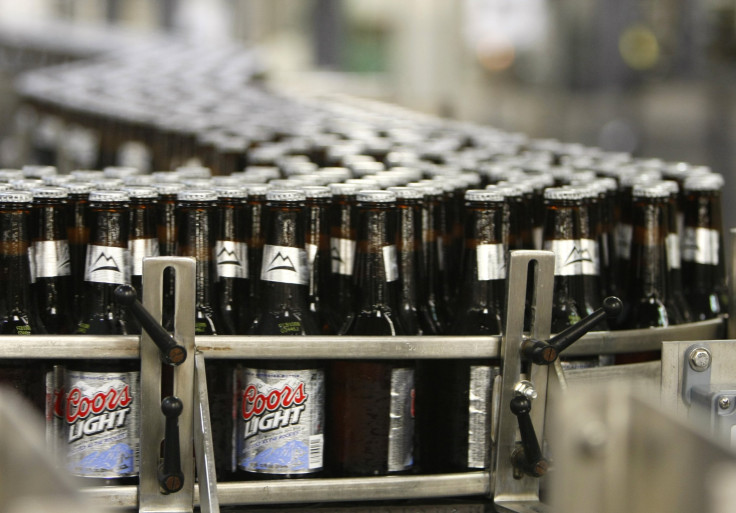Molson Coors Serves Up Warmer Beers For China's Cold-Phobic Drinkers

Coors Light markets itself as being best at ice-cold temperatures. Designed with scenes of Colorado’s Rocky Mountains, the can even uses special technology that changes colors from silver to blue, notifying consumers when the beer is at its ideal icy temperature.
But its slogan, “the coldest tasting beer in the world,” may not fly in other international markets -- particularly China.
In China, ice-cold drinks are not widely consumed. Conventional wisdom has it that cold liquids are bad for digestion, and instead the Chinese opt for warm or even hot beverages, even with scorching summer temperatures outside. Instead of cold glasses of water, many Chinese drink hot tea, or even hot water, because it aids in breaking down and digesting fats.
Taking this habit into consideration, Molson Coors Brewing Co. (NYSE:TAP), has lowered the threshold of coldness of its special thermochromatic ink to change colors at warmer temperatures for cans that will be sold in China.
“We take into account local drinking habits, but brand identity will remain the same,” President and CEO of Molson Coors International, Krishnan Anand, told Bloomberg.
Peter Swinburn, the CEO of Molson Coors, said “we dropped the temperature for the thermochromatic ink, and it still turns blue, but it’s not so cold.” Cans and bottles sold in China will turn blue when the beer drops below 44.6 degrees Fahrenheit, or 7 degrees Celsius, while the standard in North America changes colors at 39.2 degrees Fahrenheit, which is roughly 4 degrees Celsius.
China is an ideal market for Molson Coors. With a growing middle class with matching growing wallets, and an affinity for foreign brands, beer consumption in emerging markets like India and China is estimated to increase nearly eight percent in the next five years, Euromonitor International, a research firm, reported.
Molson Coors diversification of markets is a necessary strategy considering the Denver company’s main markets -- the U.S., UK, and Canada -- are expected to see sales fall in the same period by 0.7 percent.
Though Molson Coors will probably see success by warming up beers, the bad effects of cold beverages have been debunked. Indulging in multiple ice-cold beers, on the other hand, may have different kinds of consequences.
© Copyright IBTimes 2024. All rights reserved.






















